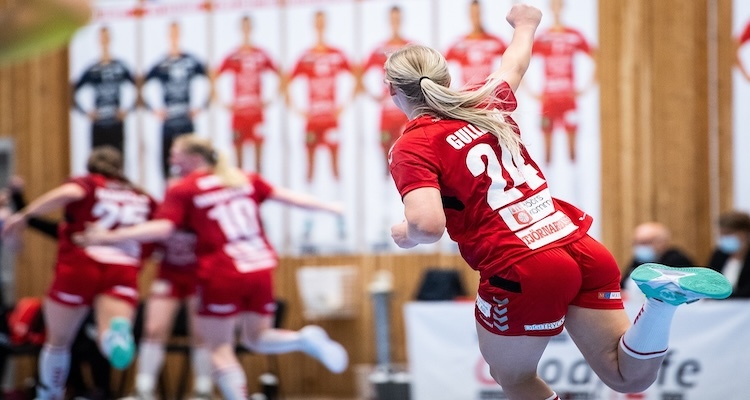
Handball, a fast-paced and dynamic team sport, blends elements of basketball, soccer, and hockey into a thrilling game played worldwide. With origins dating back to ancient civilizations, modern handball gained popularity in Europe in the late 19th century. Played indoors on a court roughly the size of a basketball court, handball teams aim to score goals by throwing a ball into the opponent's net. The sport demands agility, speed, and strategic thinking, as players must navigate through a constantly shifting defense to create scoring opportunities.
Handball's intense nature captivates both players and spectators, with matches often featuring rapid turnovers, intricate passing sequences, and spectacular goals. Its popularity continues to grow globally, with professional leagues attracting large audiences and international competitions showcasing the sport's top talent. Handball's inclusivity, requiring minimal equipment and accommodating diverse skill sets, further contributes to its widespread appeal.
Because of the fast nature of the game psychological factors play a crucial role in handball performance. We now turn to explore how a sport psychologist can be helpful for handball players.
From managing stress and anxiety to developing mental resilience and focus, a sport psychologist offers a range of interventions tailored to the individual needs of athletes. Let's delve into how a sport psychologist can support a handball player across various aspects of their performance:
Handball players often face intense pressure during competitions, which can lead to increased stress and anxiety. A sport psychologist helps athletes develop coping strategies to manage these emotions effectively. Techniques such as deep breathing, visualization, and progressive muscle relaxation can help players stay calm and focused under pressure.
Confidence is essential for peak performance in handball. A sport psychologist works with players to build self-belief and confidence in their abilities. Through positive self-talk, goal setting, and imagery techniques, athletes learn to overcome self-doubt and perform at their best.
Maintaining focus and concentration is crucial for success in handball, where split-second decisions can determine the outcome of a game. Sport psychologists teach players how to improve their attentional control and block out distractions. Techniques such as mindfulness meditation and attentional focusing exercises can enhance players' ability to stay focused during training and competition.
Setting clear, achievable goals is fundamental to improving performance in handball. A sport psychologist helps players set both short-term and long-term goals that are specific, measurable, attainable, relevant, and time-bound (SMART). By breaking down larger goals into smaller, actionable steps, athletes can track their progress and stay motivated.
Maintaining high levels of motivation is essential for consistent performance in handball. A sport psychologist helps athletes identify their intrinsic and extrinsic motivations and develop strategies to stay motivated, even in the face of challenges or setbacks. By fostering a growth mindset and emphasizing the importance of effort and perseverance, players can sustain their motivation throughout their career.
Handball is a team sport that requires effective communication, cooperation, and cohesion among players. A sport psychologist works with teams to improve their interpersonal dynamics, resolve conflicts, and build trust and camaraderie. By promoting a supportive team environment and fostering a sense of collective responsibility, players can enhance their performance on the court.
Handball players often experience a wide range of emotions during competition, including frustration, anger, and disappointment. A sport psychologist teaches athletes how to recognize and regulate their emotions in healthy ways. By developing emotional resilience and coping skills, players can maintain composure and focus, even in high-pressure situations.
Injuries are a common challenge for handball players, often requiring physical rehabilitation as well as psychological support. A sport psychologist helps athletes cope with the psychological impact of injuries, such as frustration, fear of re-injury, and loss of confidence. Through mental skills training and psychotherapy, injured players can maintain a positive mindset and facilitate their recovery process.
Sport psychologists collaborate with coaches and support staff to analyze players' performance and provide constructive feedback. By identifying strengths and areas for improvement, athletes can refine their skills and enhance their overall performance. Sport psychologists may also use performance profiling and self-assessment tools to help players gain insight into their performance and development areas.
Handball players often face transitions throughout their careers, whether it's transitioning from junior to senior level competition, retiring from professional play, or pursuing other career opportunities outside of sport. A sport psychologist helps athletes navigate these transitions by providing support, guidance, and resources to adapt to new challenges and opportunities.
A sport psychologist plays a multifaceted role in supporting handball players' mental and emotional well-being, as well as their performance on and off the court. By addressing psychological factors such as stress, confidence, focus, motivation, and team dynamics, sport psychologists help athletes maximize their potential and achieve success in their sport.
We have a number of sport psychologists who advertise their services on our site. Visit our homepage for our easy to use online directory to find a sport psychologist near you.
